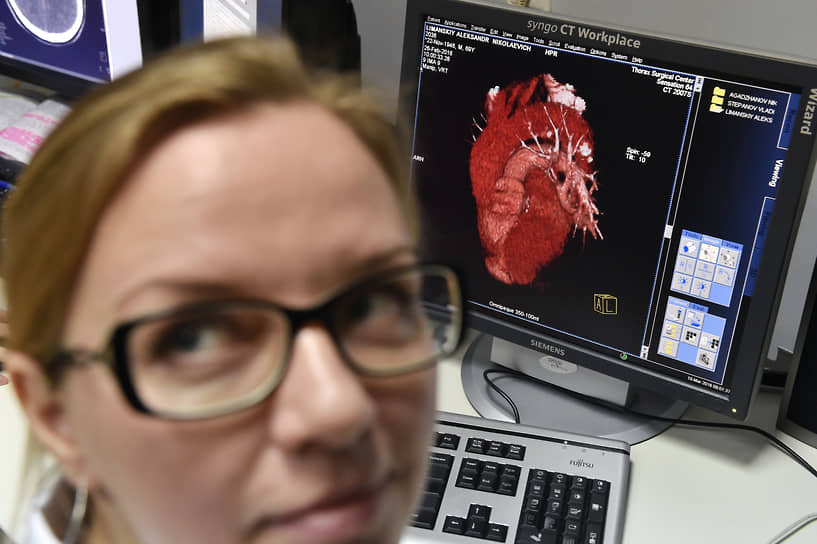Many regions in Russia require federal financial aid to treat residents with high cholesterol levels. Some areas report needing «tens of millions» of rubles. These conclusions are based on a study conducted in 64 regions by a special commission of «United Russia.» At least 12,000 patients with dyslipidemia are in need of intensive therapy; without medication, they face a high risk of severe cardiovascular diseases. The Ministry of Health, however, believes that the current level of state support for these citizens is already substantial.

«Kommersant» reviewed the study «Need for Dyslipidemia Therapy,» which was presented at the All-Russian Patients Union forum on cardiovascular diseases by Denis Protsenko, chairman of the «United Russia» General Council commission on healthcare and director of the Kommunarka multidisciplinary clinical center.
Dyslipidemia is a condition characterized by abnormal levels of fats in the blood. It commonly results in elevated cholesterol (hypercholesterolemia) and consequently increases the risk of serious cardiovascular diseases, including coronary heart disease, myocardial infarction (heart attack), and stroke. According to studies from 2020–2022, the prevalence of hypercholesterolemia in the Russian Federation was 58.8%, while hypertriglyceridemia (elevated triglycerides, another type of dyslipidemia) was 32.2%.
Presenting the study, Denis Protsenko noted that Russia already has a dedicated federal project, «Combating Cardiovascular Diseases,» launched in 2019 as part of the national «Healthcare» project. «However, during the commission`s discussion,» he stated, «it seemed to us that we had missed certain aspects. When considering atherosclerosis as a factor in circulatory system diseases, ensuring the control and treatment of hypercholesterolemia is something we must provide.»
As part of the study, authorities from 64 federal subjects were surveyed. The aim was to identify problems hindering the reduction of «bad cholesterol» levels in cardiac patients. The need for financial support for therapy from federal authorities was also assessed.
According to Denis Protsenko, at least 12,000 patients require intensive drug therapy for dyslipidemia. This refers to PCSK9 target therapy, which uses medications when other treatments (such as maximum doses of statins) are ineffective or not tolerated. However, PCSK9 inhibitors are not included in the list of drugs covered by the federal project, which provides medications to citizens on preferential terms funded by the federal budget. The study indicates this is a significant issue in dyslipidemia management.
Representatives from 93% of the surveyed regions confirmed the necessity of including these medications in the federal program. The required funding amounts vary by region, ranging from 368,000 rubles to «tens of millions of rubles,» the study reports.
The number of patients requiring these medications varies from dozens to several thousand per region. 65% of regions would agree to expand the list of subsidized drugs if additional budget is allocated, while 35% would agree even with current funding levels.
Mr. Protsenko mentioned that two previous meetings of the «United Russia» commission on hypercholesterolemia control had taken place, following which Russian cardiologists proposed expanding the list of drugs in the medication provision program. The proposals have already been sent to the Ministry of Health and its Center for Expertise and Quality Control of Medical Care.
Anastasia Агаева, a therapist at the «СберЗдоровье» medical company, agrees that including modern lipid-lowering drugs in the federal program could help reduce cardiovascular mortality and the incidence of repeat heart attacks and strokes. Yuri Zhulev, co-chairman of the All-Russian Patients Union, believes that treating dyslipidemia should become as high a priority within the federal project as controlling blood pressure and secondary prevention of heart attacks and strokes. Anastasia Агаева also points out that dyslipidemia is a condition requiring not only therapy but also the patient`s commitment to a healthy lifestyle, including a balanced and varied diet, physical activity, and abstaining from smoking and alcohol.
The Ministry of Health`s press service did not directly comment on the regions` requests to expand the list of federally subsidized drugs when asked by «Ъ» (Kommersant).
However, the ministry emphasized that the current mortality rate from circulatory system diseases is «historically low.»
The Ministry of Health noted that within the framework of the «Healthcare» national project, a comprehensive set of measures has already been implemented to develop infrastructure and improve the effectiveness of diagnosis, treatment, and prevention of cardiovascular diseases. «Over the past five years, the subsidized drug program has significantly changed and expanded,» the ministry added. «Furthermore, new categories of patients have been included in the program, and federal funding has increased substantially. In total, over five years, more than 2.5 million high-risk patients have received free medications, and program coverage has exceeded 98%.»
According to the data presented by Denis Protsenko, the proportion of patients receiving medication and achieving the «target» cholesterol level varies significantly by federal subject, ranging from 0.80% in Ingushetia to 86% in the Leningrad region (with a national average of 35.5%). The final outcome depends not only on the availability of drugs but also on how well doctors follow clinical guidelines. Many regions do not track or monitor the effectiveness of therapy, which the study identifies as another problem.











